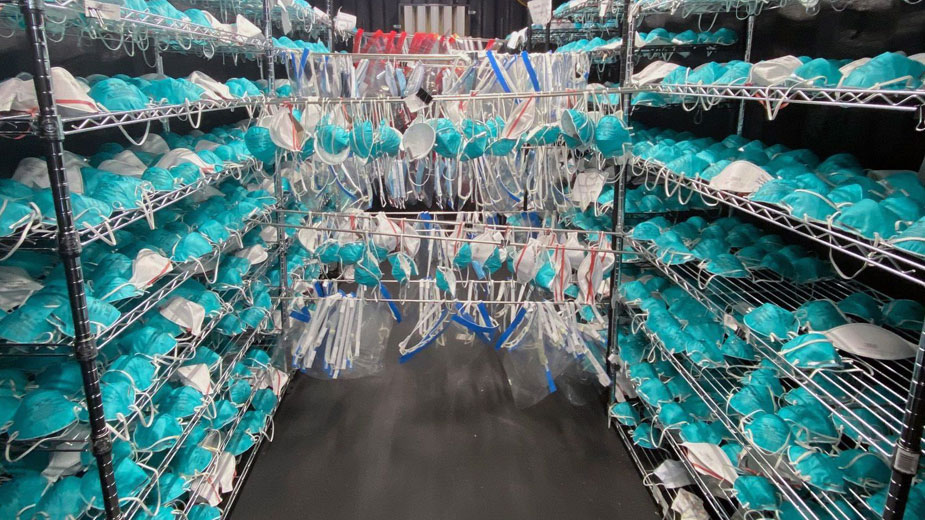Ohio Initiatives Address N95 Mask and Testing Shortages
YOUNGSTOWN, Ohio — Companies and academic institutions in the state are making new strides in addressing the shortages in personal protective equipment and testing kits.
Battelle Memorial Institute has offered to expand its sterilization program for N95 respirator masks to include law enforcement agencies and emergency medical services providers. Gov. Mike DeWine announced the expansion during his daily briefing on Wednesday.
Beginning 8 a.m. April 17, those first responders can bring their packaged N95 masks to any Ohio State Highway Patrol post in the state. The highway patrol will deliver the masks to Battelle to be sterilized. The turnaround is expected to be two to three days.
In March, the U.S. Food and Drug Administration approved Battelle’s process to sterilize up to 160,000 N95 respirators daily between two systems. The process allows masks to be cleaned up to 20 times.
“This will contribute greatly to our efforts to protect Ohio’s protectors,” and will help expand the use of the N95 masks that continue to be in short supply, DeWine said.
The effort was coordinated by the Ohio Department of Public Safety and the Ohio State Highway Patrol. The highway patrol will issue guidelines on how the masks are to be packaged.
On April 10, Battelle announced its decontamination services for N95 masks would be offered at no charge to health-care providers under a new contract with the federal government, which funds the program for up to $400 million across 60 deployment sites.
A team of researchers at Ohio State University developed an “in-house recipe” to make the liquid transport medium required for COVID-19 test kits. In addition, the OSU Wexner Medical Center, OSU colleges of medicine, engineering and dentistry, as well as the OSU Infectious Disease Institute and Institute for Materials Research collaborated with a national consortium “that rapidly deployed a design and testing program for 3D-printed testing swabs,” DeWine said.
OSU is working with Formlabs, a Toledo-based 3D printing company, to manufacture the swabs and swab kits “in significant quantities,” DeWine said.
By the end of April, the organizations look to hit a target of 200,000 swabs and kits to be shared with the Ohio Department of Health and hospital systems in the state, DeWine said.
“So again, Ohio ingenuity, Ohioans coming together to solve a problem,” he said.
Pictured: Protective masks hang in a decontamination unit at the Battelle N95 decontamination site at its West Jefferson location. (Image: Battelle)
Copyright 2024 The Business Journal, Youngstown, Ohio.



